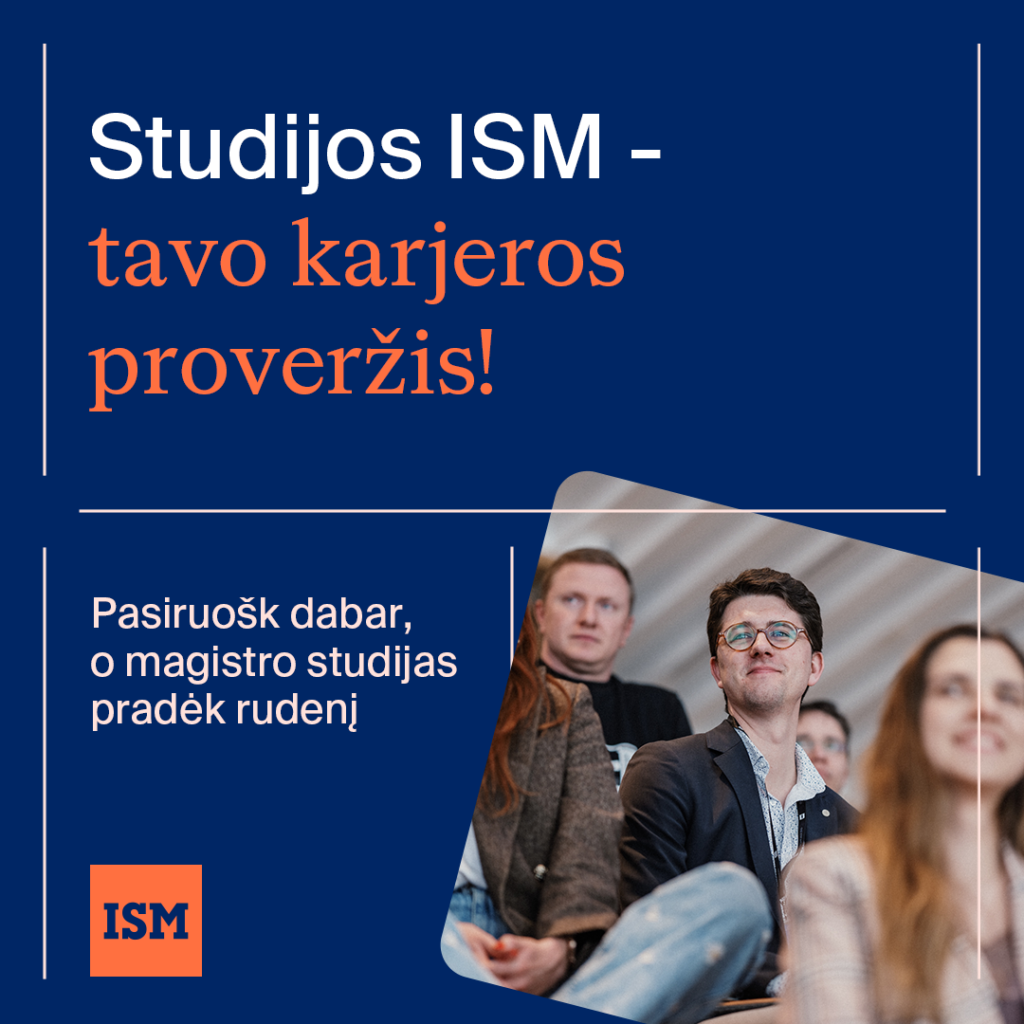On November 11, ISM University of Management and Economics celebrates its 25th anniversary.
The goal of Lithuania’s first private university, established in 1999, was to teach the principles of modern business, management, economics, and finance to managers and then to bachelor, master, and doctoral students. Today, the international university is valued for its unique mission: to promote the competitiveness of Lithuanian business, the community’s critical thinking, and lifelong learning.
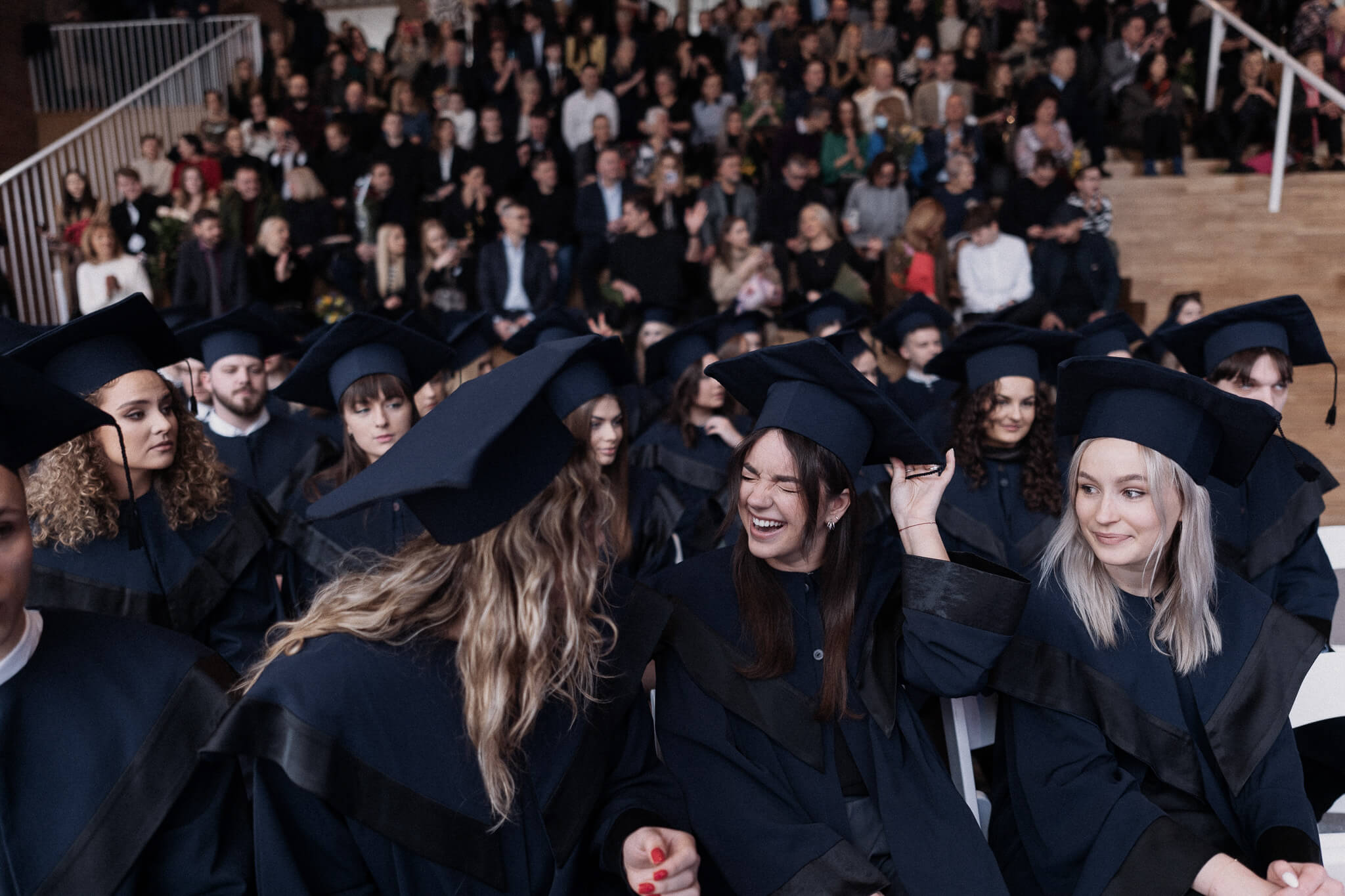
To mark the important anniversary, ISM is preparing for a long-awaited visit—experts from the AACSB association, which provides one of the most prestigious international accreditations in the world, will come for a visit in the spring. Since 2017, the university community has provided the association with information about the university’s mission, strategy, ongoing scientific work, and teaching methods. ISM’s goal is to join just 6 percent of the world’s best accredited international business schools, committed to positively impacting society through research, degree programmes, and community engagement. Recently, besides the growing number of study programmes, students, and ongoing scientific research, the university’s engagement in the country schools’ development has intensified remarkably.
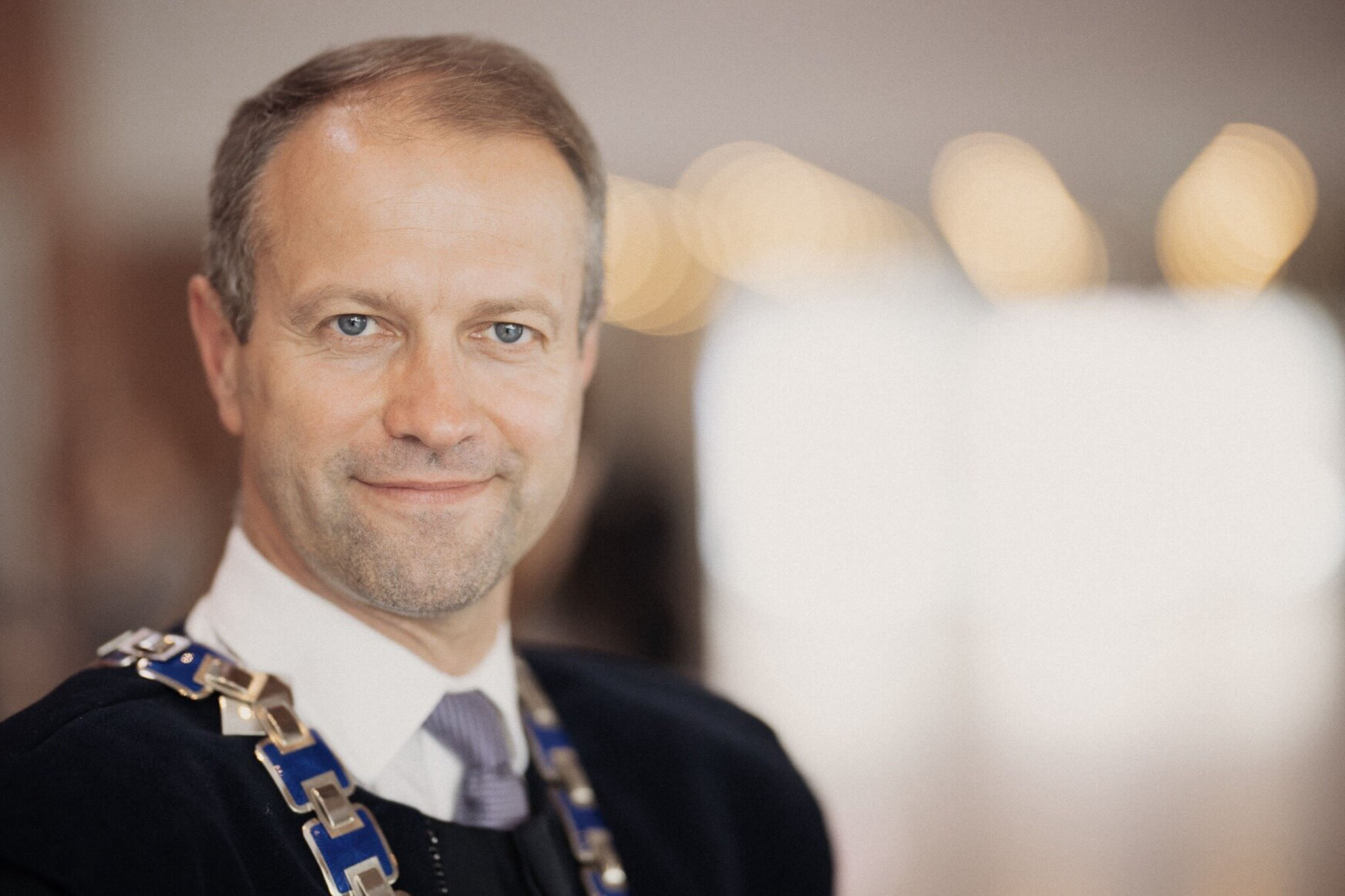
Looking back, what did the private university that started operating at the turn of the 20th and 21st centuries face? According to Dr. Misiūnas, the beginning was not easy.
In a young democracy, there was no legal basis for establishing a private university.
Lithuania was just making its way to the Western world, and the university, together with its co-founders, BI Norwegian Business School, aimed to be a step ahead—to create Western training programmes, to attract foreign lecturers to a little-known country, and to open opportunities for students to go to foreign universities. Although it was unusual at the time, the language of instruction was English, which opened the possibility of offering international exchanges.
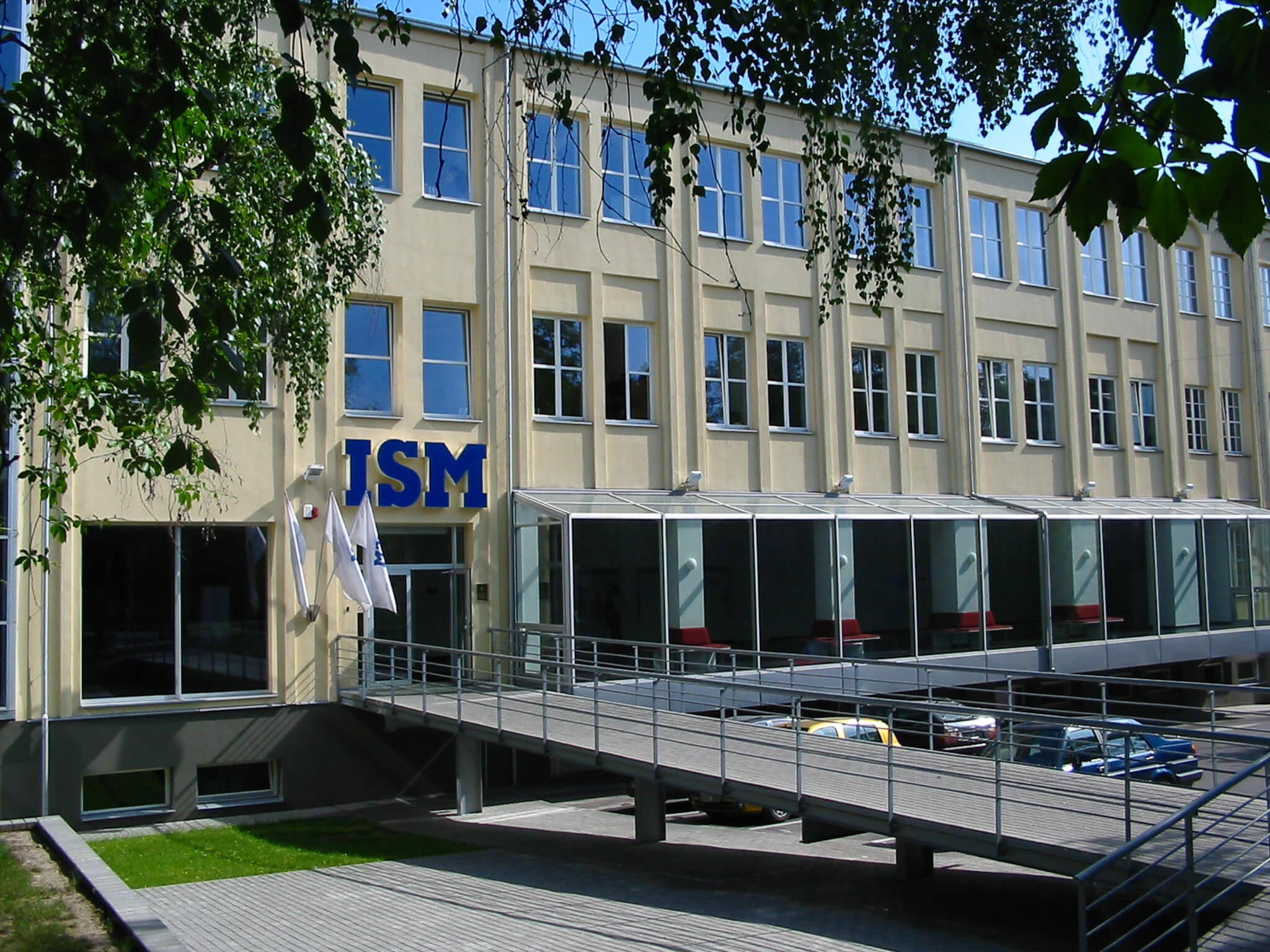
25 years later, the situation of both ISM and the country is radically different. Today, Lithuania is the strongest economy in the Baltic States, and the country’s business is resilient, adapting to constant changes as quickly as possible.
From a developing economy to a technology leader
Former ISM students, who are well-known experts in their fields today, remember well the greatest changes in Lithuanian business and economy. Žygymantas Mauricas, lecturer, economist, and Doctor of Science in ISM, points out that since the 2000s, many of the country’s key sectors, such as agriculture, services, transport, and energy, have experienced growth.
For example, according to the data of the Official Statistics Portal, the GDP per capita at the beginning of 1999, calculated in euros, was 806.2 EUR. By 2024 it had increased approximately 7.5 times and amounted to EUR 6062.2. The portal also demonstrates the change in salaries over 16 years. The average gross monthly salary at the beginning of 2008 was approximately 623 EUR, and at the beginning of 2024, it was almost three and a half times more, EUR 2.161.
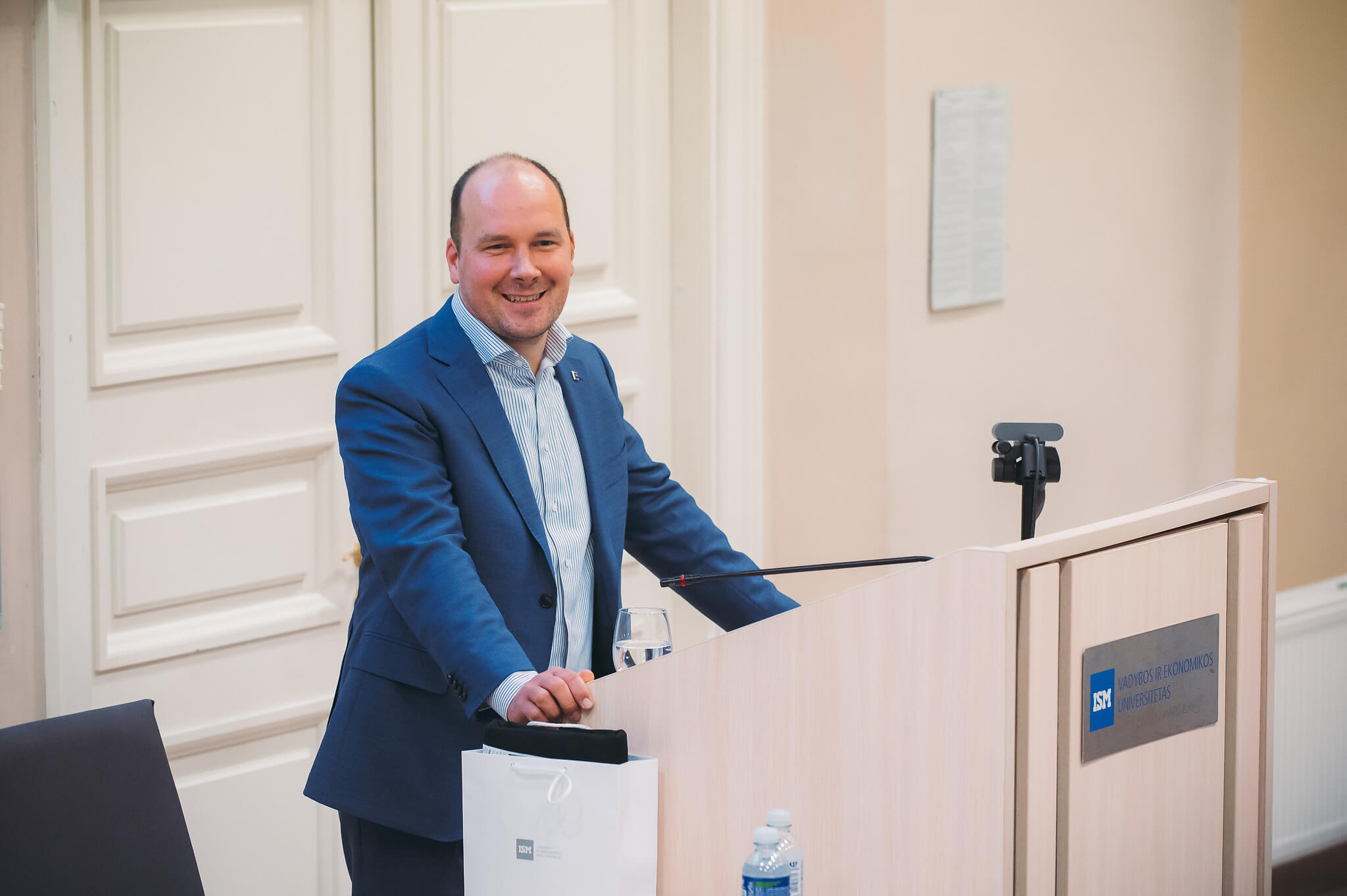
According to the vice president of the Lithuanian Business Confederation, economist Marius Dubnikovas, who studied in the first ISM bachelor’s programme, the value of knowledge and intelligence in business has become evident over almost three decades, which fundamentally changed Lithuanians’ attitude to education and to how business, society, and employees are interlinked.
“It has become customary to evaluate employees based on their competence instead of their circle of acquaintances and influence. The attitude of business and the government towards each other changed, which contributed to the increase in the responsibility of Lithuanian business, promoted the development of the “green course,” and established more sustainable activity standards,” Dubnikovas explains.
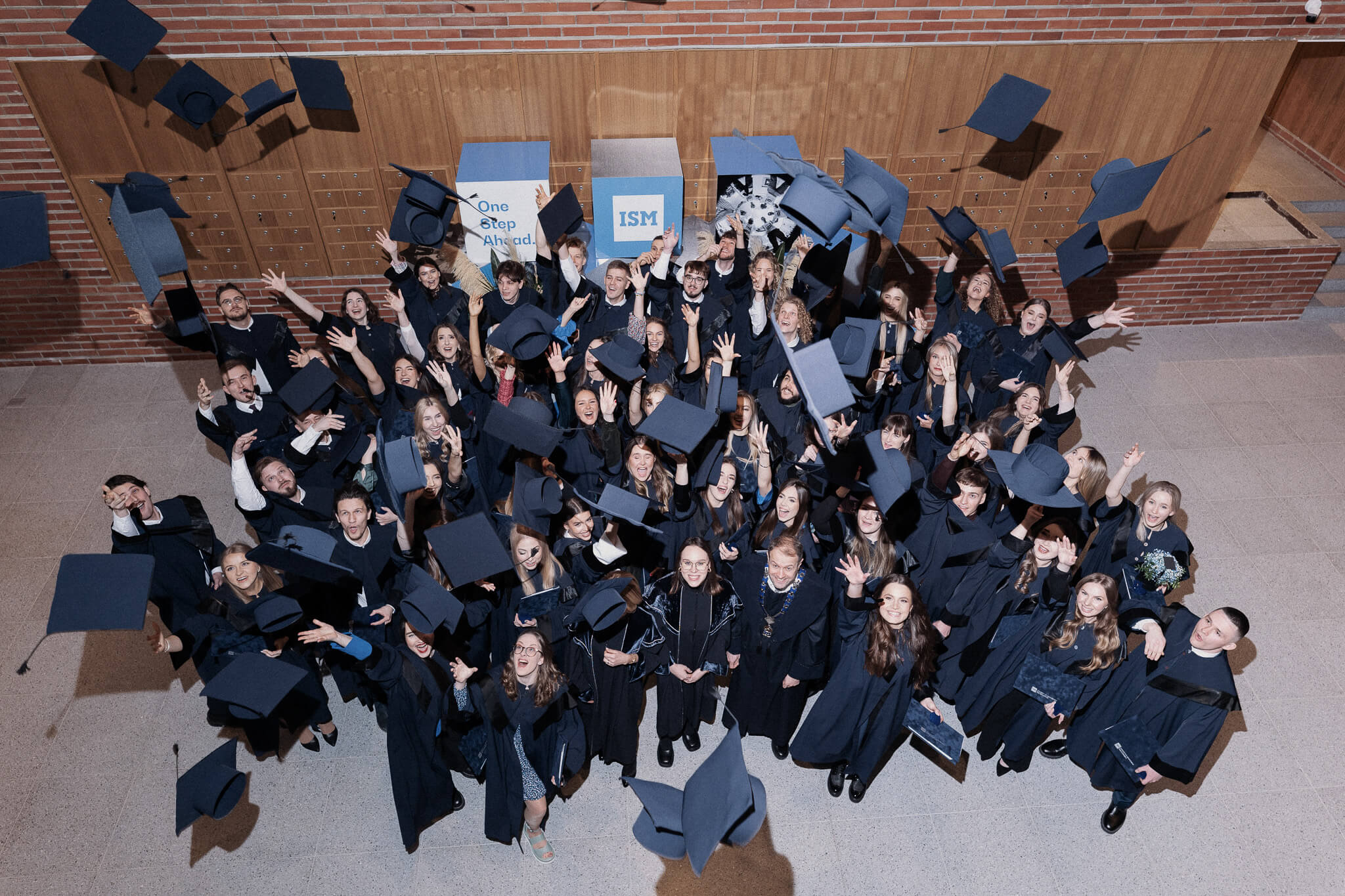
According to him, if earlier it was believed that one’s education did not matter and one would still “get some kind of job,” in the long run it became evident that a good education is a person’s key to a better life.
Education that drives competitiveness
When talking about Lithuania’s economic future, the experts unanimously agree that the most important goal is not to stop and maintain growth. This requires constant technological development, as the low-hanging fruits have already been picked and all the efforts made over 20 years are paying off. According to Mauricas, Lithuania’s future economic growth will be based on people’s creativity, entrepreneurship, and ability to create added value.
“Further success depends on how Lithuania manages to make use of its potential: to create conditions for residents to receive quality education, to create innovative businesses, and to promote business exports. Lithuania no longer has the advantage of cheap labour, so it is necessary to maintain high rates of foreign investment and technology development,” Mauricas elaborates.
Dr. Misiūnas is also convinced that educated and competent professionals will continue to be the basis of Lithuania’s competitiveness. He emphasizes that it is important to constantly take care of the competencies of school and gymnasium leaders and to improve education quality and efficiency.
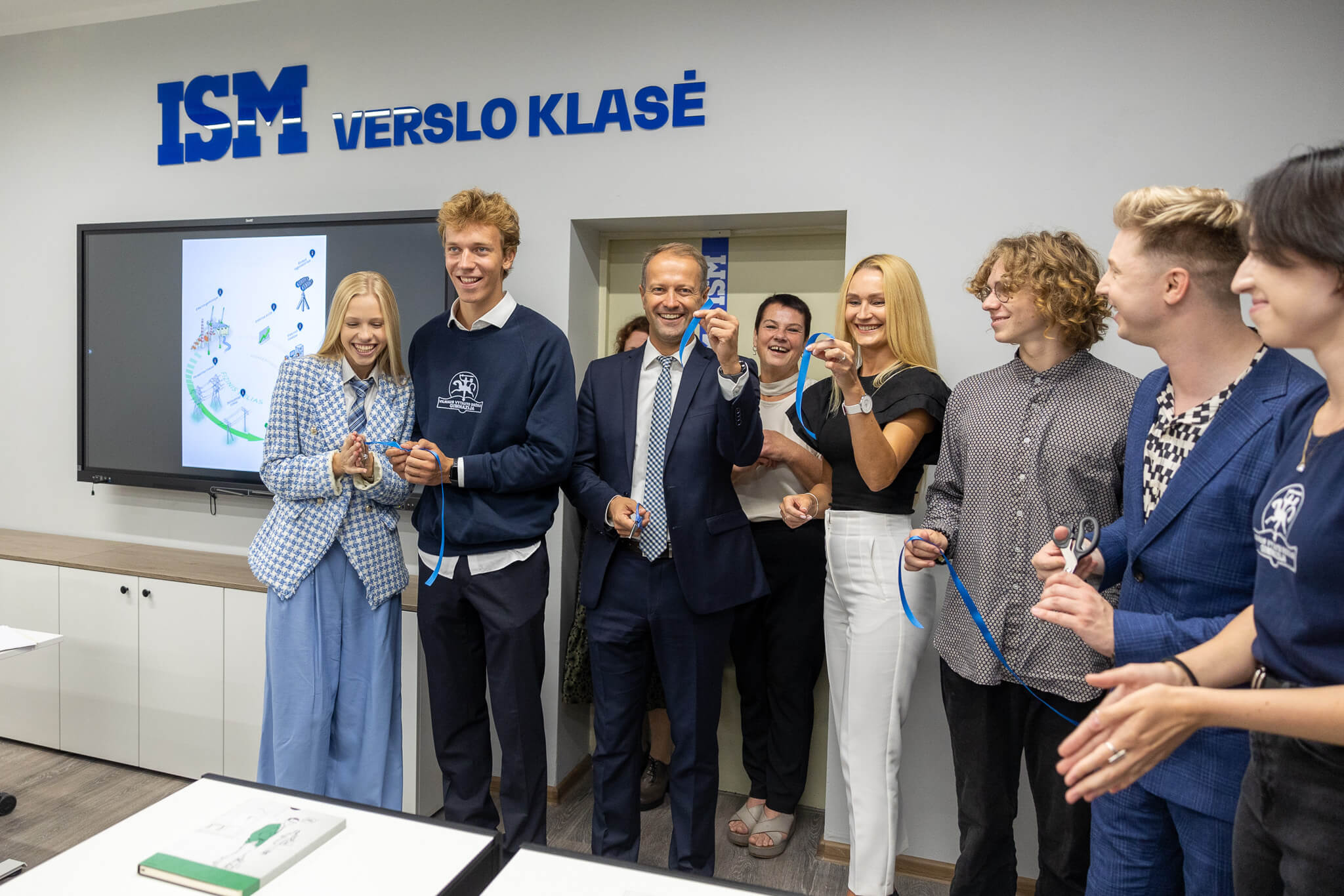
“Since 2011, we have been cooperating with the country’s municipalities, and we make sure that the heads of educational institutions update or acquire the management knowledge they need. These studies now unite almost 800 school and gymnasium managers. They bear responsibility for the quality of education and the students’ knowledgeability, as well as teacher recruitment and retention. A new opportunity has just appeared: artificial intelligence. How will schools use it? Will it help in solving some of the problems?” Dr. Misiūnas comments.
In the president’s belief, in the end, the country wins when fully educated individuals graduate from the university who understand that the technological era brings changes one after another, making lifelong learning paramount.
Creative thinking, the ability to understand and solve complex problems, and operating in the global business market are becoming more important. Today, the mission of educational institutions is even more complicated because it is important to focus on the comprehensive development of human competencies instead of churning out “textbook” experts.
Lithuanians should keep raising the bar ever higher
During a quarter of a century, ISM University was headed by four presidents: the founder, Dr. Virginijus Kundrotas, Dr. Nerijus Pačėsa, Dr. Alfredas Chmieliauskas, and today, Dr. Misiūnas, who firmly believes in the mission to be one step ahead. He says that both the ISM and the country have so far managed to achieve high results because they have bold ambitions and a strong desire to make them come true.
“To increase the number of study programmes from 1 to 19. To establish a fund whose partners, the domestic business, help to educate gifted students who find themselves in a difficult financial situation. To feel the pulse of global business and prepare experts whose demand will be high both now and in the future, in Lithuania as well as abroad. To grow stronger as a unique international business university that provides students with a competitive education. ISM keeps asking itself how to be better than yesterday, and this strategy works”, says Dr. Misiūnas.
On the university’s birthday, the president wishes Lithuanians to keep raising the bar ever higher. When one has an ambitious goal, it’s easier to take action to achieve it.
Over the past five years, the number of students has proliferated by as much as 40 percent, and currently, a total of 2,300 students are studying at the university, including more than 500 managers. Half of undergraduate and graduate students study with study grants. ISM currently unites about 8 thousand alumni.


